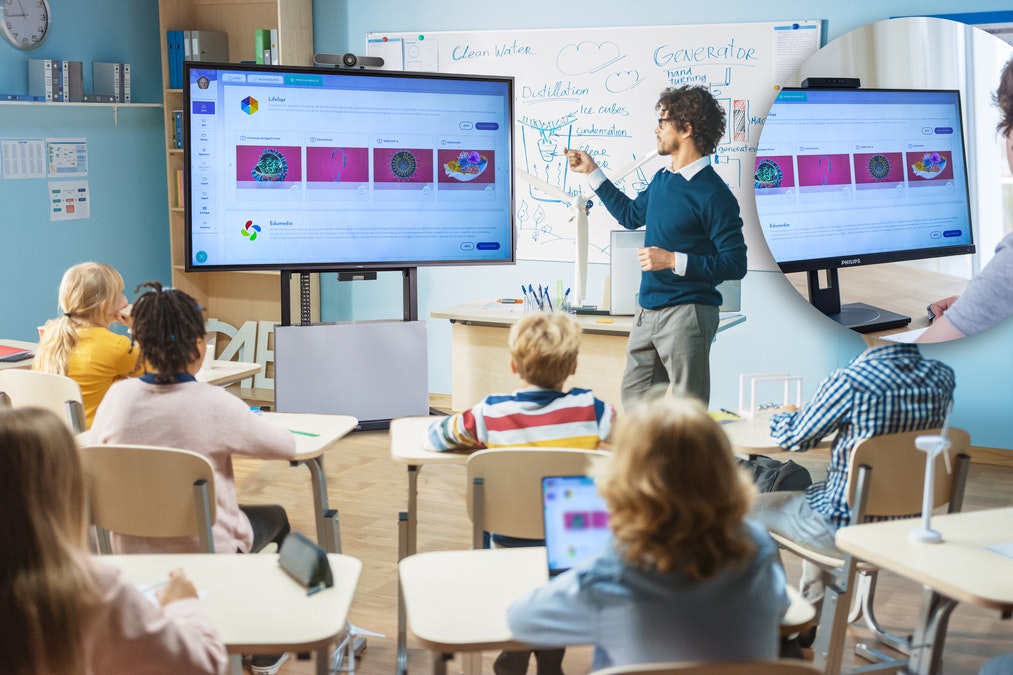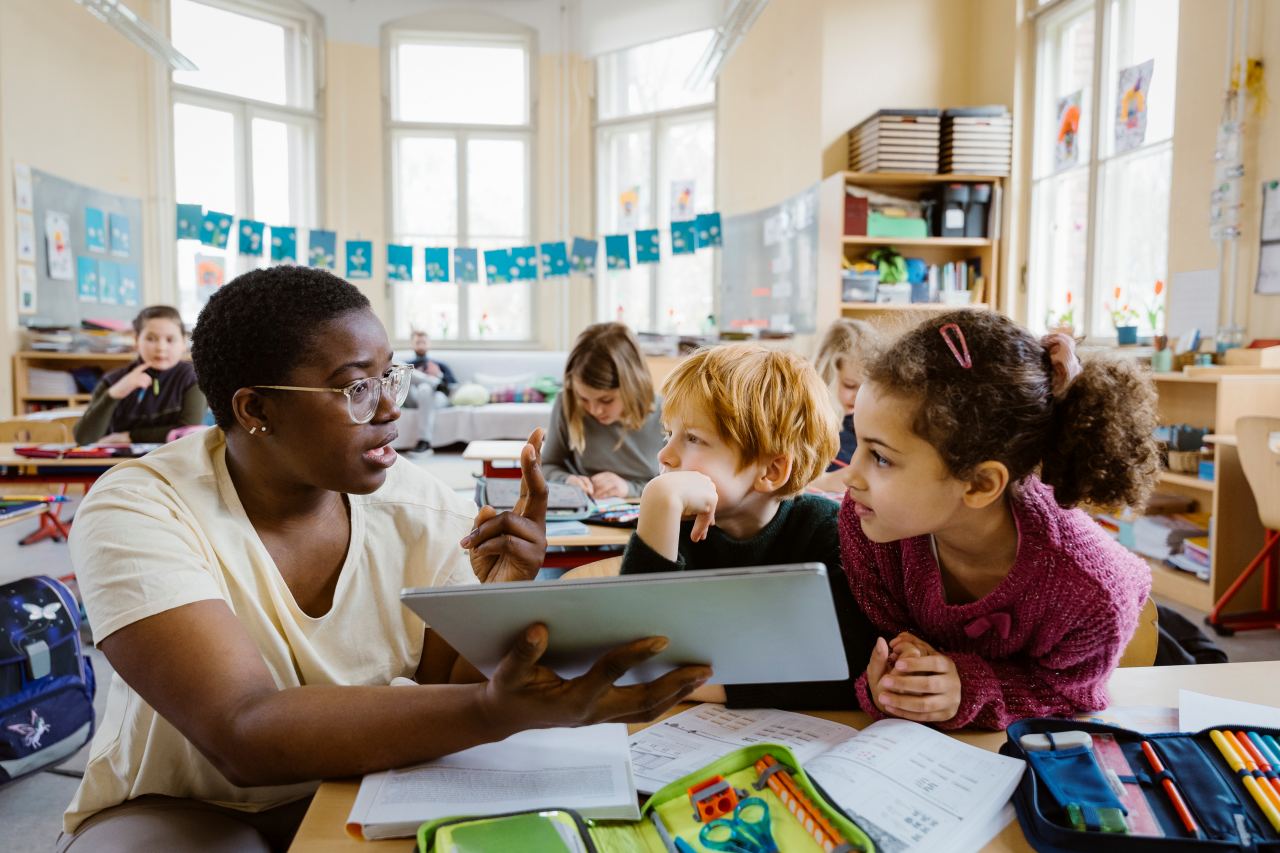Achieve Academic Success with Primary Science Tuition Singapore
Achieve Academic Success with Primary Science Tuition Singapore
Blog Article
Discover the Crucial Advantages of Understanding Key Science for Young Learners
The value of primary scientific research education for young learners extends far past mere expertise acquisition; it functions as an essential column in creating necessary skills such as important reasoning, analytical, and imagination. Engaging with scientific ideas with interactive and inquiry-based activities not only grows interest however also lays the foundation for resistant, certain learners. As we discover these benefits even more, it becomes clear that the ramifications for future academic and individual growth are extensive. However, what particular techniques can instructors utilize to maximize these advantages?
Enhancing Critical Believing Abilities
Cultivating vital thinking skills in young learners is necessary for their cognitive development and future scholastic success. Important reasoning makes it possible for youngsters to evaluate info, review proof, and make notified choices, which are crucial abilities in today's information-rich society. By taking part in clinical questions, young learners can enhance these skills as they check out ideas through reasoning, observation, and experimentation.
In primary scientific research education and learning, teachers can promote vital reasoning by motivating students to ask questions, develop hypotheses, and carry out experiments. This hands-on strategy enables children to practice problem-solving and create sensible thinking abilities. For instance, when students investigate the homes of materials or the principles of movement, they discover to evaluate their findings seriously and draw final thoughts based upon proof.
Furthermore, discussions and collaborative jobs can advertise essential thinking by giving possibilities for learners to express their thoughts, obstacle presumptions, and take into consideration diverse point of views. By developing a supportive setting that values query and representation, educators can nurture important assuming skills that empower young students to end up being independent thinkers and long-lasting learners. Ultimately, improving these skills lays a robust structure for their future scholastic endeavors and personal growth.
Promoting Curiosity and Expedition

Key science education and learning provides an organized setting where young students can explore various sensations with hands-on experiments and monitorings. By allowing them to connect with materials and involve in inquiry-based understanding, educators develop opportunities for children to develop hypotheses, check their ideas, and reason. Such experiences nurture a feeling of wonder and enjoyment concerning science.

Building Confidence in Issue Fixing
Building self-confidence in analytical is an essential part of main scientific research education that encourages young students to come close to difficulties with strength and imagination - primary science tuition Singapore. They establish crucial skills in critical thinking and evaluation when kids are motivated to involve with scientific ideas via hands-on activities and inquiry-based discovering. This process not only enhances their understanding of scientific principles however also promotes a sense of possession over their knowing
To develop confidence, great site teachers ought to produce an encouraging atmosphere where errors are deemed chances for growth instead of failures. This urges pupils to take threats and discover numerous options to issues. By supplying scaffolding and assistance, teachers can aid pupils browse complex tasks, progressively raising their independence in analytic situations.
Furthermore, joint understanding experiences, such as group projects or experiments, can further improve pupils' confidence as they learn to verbalize their ideas and pay attention to others' point of views. These interactions nurture social skills and enhance the concept that problem-solving is frequently a collective venture. Eventually, cultivating self-confidence in analytic prepares young students for future academic difficulties and furnishes them with the devices necessary for long-lasting discovering.
Encouraging Imagination and Advancement
In the world of main science education and learning, motivating creativity and technology is crucial for cultivating a vibrant knowing environment. By fostering a society where young students can check out ideas and experiment easily, instructors assist students create important believing skills and an interest for discovery. Creative thinking in science urges kids to ask inquiries, develop theories, and engage in hands-on activities that promote their creative imagination.
Incorporating open-ended jobs and inquiry-based knowing right into the curriculum allows trainees to reveal their one-of-a-kind perspectives and services. For example, when tasked with fixing a trouble pertaining to their setting, students can conceptualize several techniques, leading to inventive results that showcase their originality. This not only deepens their understanding of scientific principles however also imparts a sense of possession over their understanding procedure.
Furthermore, innovative scientific research education nurtures cooperation amongst peers, as pupils usually share concepts and build on one an additional's insights - primary science tuition Singapore. This collective spirit advertises not only development yet additionally essential social skills. Therefore, by focusing on creativity and development in main science education, we equip young learners to believe critically, embrace obstacles, and picture possibilities, laying a strong structure for long-lasting learning and expedition
Planning For Future Understanding Challenges
Young learners' capacity to browse future understanding difficulties rests on go now a solid foundation in key science education. This foundational understanding outfits trainees with important believing abilities and a methodical technique to analytical, vital for taking on complicated issues in an ever-evolving globe. Key science promotes inquiry-based knowing, motivating students to ask questions, explore hypotheses, and take part in hands-on experiments.
As they develop these skills, learners come to be adept at assessing data, acknowledging patterns, and attracting informed final thoughts. Such expertises are vital not only in scientific areas but additionally in modern technology, design, and mathematics (STEM), where interdisciplinary understanding is progressively critical.
Moreover, main science education and learning cultivates a sense of interest and resilience in young students, enabling them to view difficulties as opportunities for growth. As they run into and overcome barriers in their clinical explorations, they construct confidence in their ability to adjust and innovate.
Eventually, a solid foundation in primary science not just prepares young learners for scholastic quests however likewise furnishes them reference with the devices necessary for long-lasting learning and versatility in a quickly altering global landscape. By investing in primary scientific research education and learning, we are purchasing the future possibility of our students.
Conclusion
Understanding main science is vital for young learners, as it fosters vital thinking, interest, and creativity. Involving with clinical ideas via hands-on experiments builds and improves analytical abilities resilience. This fundamental knowledge not just gears up pupils to analyze data and acknowledge patterns yet additionally supports an inquiry-based state of mind. Ultimately, the advantages of primary scientific research education prepare kids for future academic searches and instill lifelong discovering behaviors essential for growing in an ever-evolving globe.
The value of primary scientific research education and learning for young students extends much beyond simple understanding purchase; it serves as a basic pillar in developing vital skills such as critical reasoning, problem-solving, and creativity. By producing an encouraging environment that values inquiry and representation, educators can nurture important believing abilities that empower young students to become independent thinkers and lifelong learners. Therefore, by focusing on creativity and development in main science education, we empower young students to think seriously, accept challenges, and visualize opportunities, laying a solid foundation for long-lasting learning and exploration.
Young learners' capability to browse future understanding difficulties pivots on a strong structure in main scientific research education.Comprehending primary science is essential for young learners, as it cultivates important reasoning, curiosity, and imagination.
Report this page